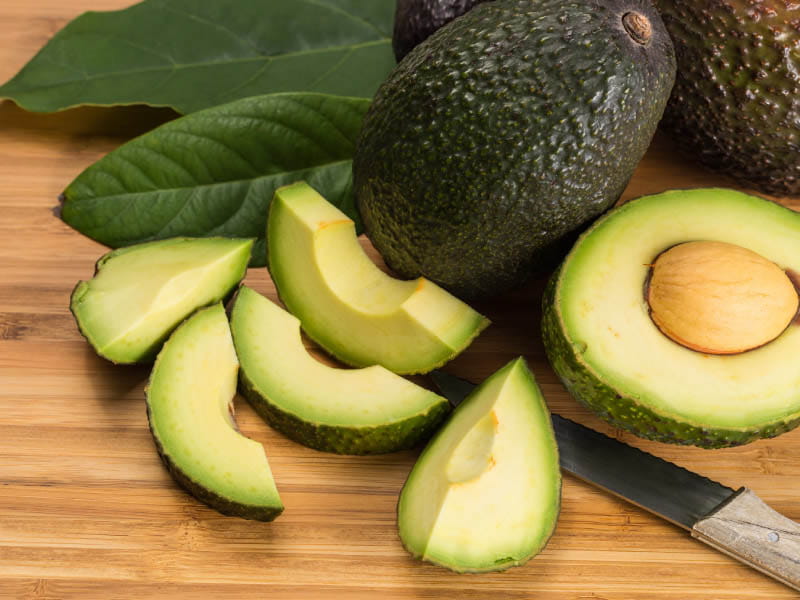Avocado Fruit – A Natural Cure For Health Ailments


Avocado is a fruit from the evergreen tree that’s native to North America and was first domesticated by Mesoamerican tribes more than 5,000 years ago. As well as being rich in heart-healthy fats, it’s also a source of lutein and zeaxanthin, which are important for eye health.
It’s also loaded with folic acid, which is needed during pregnancy to ensure healthy brain and nerve development for the unborn child. Plus, it reduces cholesterol levels for expectant mothers.
1. Lowers Blood Pressure
Avocado fruit is a natural cure for a number of health ailments. It contains a variety of nutrients and antioxidants that can boost your heart, eye, digestive and oral health. Genericmeds Treatment also helps to regulate blood pressure and cholesterol levels.
High blood pressure, also known as hypertension, is a major risk factor for strokes and other cardiovascular issues. It is estimated that over one billion people worldwide are affected by this condition and it is the fifth leading cause of death in men and women.
Having a healthy diet that includes foods low in salt and rich in potassium is key to lowering your blood pressure. A recent study found that increasing your intake of potassium-rich foods like sweet potatoes, spinach, bananas and avocados can help lower your blood pressure.
This is because it reduces oxidative stress and inflammation in your body, which can contribute to high blood pressure. Moreover, it can reduce the amount of sodium in your body, which is another cause of high blood pressure.
Avocado is a natural cure for high blood pressure because it is full of monounsaturated fats that lower bad cholesterol and triglycerides. It is also a good source of high-density lipoprotein (HDL), which helps remove harmful “bad” cholesterol from your body.
2. Lowers Cholesterol
Cholesterol is a waxy fat-like substance that is produced by the liver and found in many foods. It plays a crucial role in maintaining healthy blood cholesterol levels and helps keep arteries free from plaque.
But elevated levels of this compound can cause health problems, such as heart attacks and strokes. Avocados are a great source of heart-healthy monounsaturated and polyunsaturated fats, which help reduce cholesterol levels.
A six-month study published in the Journal of Nutrition found that eating one avocado a day decreased total cholesterol and LDL (bad) cholesterol. It also lowered BMI and waist circumference in overweight or obese people.
This diet was significantly more effective than a low-fat diet, which was considered to be the control group. In addition, the avocado participants consumed more fruits and vegetables, had more fiber in their diets and ate less junk food than the control group.
The researchers believe that the avocados helped decrease triglycerides and LDL cholesterol by increasing bile acid production in the small intestine, which reduces inflammation. The bacterial communities in the intestines were also significantly improved in the avocado group compared to the control group, suggesting that the fats from avocados were helping the body absorb nutrients and keep the gut healthy.
Eating avocados regularly may also increase HDL cholesterol, which is known as the good cholesterol. This type of cholesterol carries fatty deposits from the arteries to the liver, where they can be excreted from the body.
3. Prevents Heart Disease
Avocados are a delicious, nutritious fruit. They contain vitamins, minerals and healthy fats that help prevent several diseases.
They are a good source of fiber, which helps keep you regular and reduces your risk of heart disease. They also contain potassium, which can help lower your blood pressure.
This popular food is low in calories and high in nutrients like oleic acid, a heart-healthy monounsaturated fatty acid. It’s also a rich source of magnesium, potassium and folate.
Aside from being a healthy source of nutrition, avocados are a versatile ingredient that can be used to add flavor and depth to your dishes. They’re also a great addition to many vegetarian and vegan diets.
Eating a balanced, healthful diet is the best way to prevent and treat heart disease and other related conditions. Including plenty of fruits and vegetables, whole grains, nuts, fish, poultry, and vegetable oils in your daily diet along with exercising and controlling your weight are key to staying healthy.
People who regularly eat avocados may have a lower risk of heart disease, according to new research. In a study of more than 110,000 men and women, those who ate two servings of the fruit each week had an average 20% lower risk for heart disease. And those who substituted half a serving of butter, cheese or other fat-containing foods with avocado reduced their risk by up to 22%.
4. Prevents Cancer
Avocado fruit is a great source of monounsaturated fats, fiber, potassium, B vitamins, vitamin E and antioxidants. It also has folate, which can lower your risk of cancer, and prevent the buildup of homocysteine.
Avocados are low in sugar and high in fiber. One-half of an avocado contains 6-7 g of fiber, which is important for preventing constipation and maintaining digestive tract health.
Additionally, avocados are rich in lutein and zeaxanthin, which help to protect the eyes from cataracts. Lutein is a powerful natural antioxidant, while zeaxanthin helps prevent oxidative stress that can cause cataracts and macular degeneration.
The avocado is a great source of antioxidants, which can reduce your risk of cancer and other diseases by promoting the body’s production of glutathione, the liver’s master antioxidant. It also helps fight oxidative stress and reduce free radicals, which can damage cells and lead to disease.
In addition, the high fatty acid content of avocados can help prevent diabetes by reducing cholesterol levels. The oleic acid found in the avocado is a type of saturated fatty acid that binds to a receptor on your cholesterol-lowering LDL (low-density lipoprotein) blood vessels.
The lipids in avocado seed husks are the key to an experimental drug that may target leukemia stem cells, which are known to be responsible for the most aggressive forms of the disease. Researchers are hopeful that the molecule, called avocatin B, will be ready for clinical trial in years to come.
5. Prevents Osteoporosis
Avocado fruit has many health benefits including reduction of obesity, heart disease, diabetes and skin and hair problems. It has a very high level of vitamins and minerals.
It contains a variety of nutrients, including vitamin K, calcium, magnesium, folate, phosphorus, copper and manganese. These nutrients help maintain strong bones and reduce the risk of osteoporosis.
The lutein and zeaxanthin found in avocados provide antioxidant protection against UV rays, thereby protecting the eyes from cataracts and macular degeneration. They also protect the tissues in the eye from age-related damage, such as dryness and sagging.
In addition to lutein and zeaxanthin, avocados are rich in a number of other vitamins and minerals that support good eye health. These include vitamin E, which protects the cells in the eyes from oxidative stress and promotes healthy vision.
They are an important source of folic acid, which is essential for pregnancy and brain development. A daily intake of folate during the first few months of pregnancy can significantly reduce the risk of birth abnormalities, particularly those associated with the neural tube (brain and spinal cord) — such as spina bifida.
Avocados also contain dietary fiber that stimulates regular bowel movements and enhances gut health by promoting a healthy bacterial balance. This helps minimize digestive system inflammation and irritation.
6. Reduces Depression
Avocados are rich in vitamins and minerals, including folate, which research indicates may help reduce the symptoms of depression. In addition, this fruit is also high in monounsaturated fatty acids, which can help lower cholesterol and increase the levels of vitamin E in the body.
They are also a good source of antioxidants. Antioxidants help protect your cells from free radicals, which can cause inflammation and cell death. They also help protect your heart and brain from damage, and can improve cognitive brain function.
Moreover, onions are an excellent natural mood booster, thanks to their chemical properties that help lower blood sugar and stimulate your brain to produce serotonin. This hormone is responsible for making you feel happy and satisfied, so it’s important to get enough of it in your diet.
Another nutrient that helps with mental health is tyrosine, a protein amino acid that’s naturally found in meat, dairy, grains and fruits and vegetables. It’s a good idea to make sure you get sufficient amounts of this nutrient by eating more foods like bananas, walnuts, avocados, and mushrooms.
It’s a well-known fact that poor sleep is linked to depression, so establishing a regular bedtime routine, avoiding screens in the bedroom and keeping your room dark and quiet can help you get better rest. If you’re not able to change these factors in your life, consider trying バイアグラジェネリック meditation or other practices that can help you relax and calm down.




